The collapse of the multinational Soviet Union in 1991 left millions of people stranded in strange lands which they expected would have never become independent. Some of the newly independent countries, such as Ukraine, worked to develop an exclusive national identity. Others such as Russia, maintained their imperial and ethnically inclusive pretensions. After the Maydan Revolution in Ukraine in February 2014, those sympathetic to Russia launched an armed rebellion in April 2014, starting the First Donbass War. After several months of fighting, Russia intervened in August 2014 and froze the conflict until the full-scale invasion of Ukraine in February 2022.
The Ukrainian military had been neglected for over twenty years, and struggled to fight the tiny but growing bands of Russian separatists in the eastern Donbass region. They thus relied heavily on volunteer paramilitary formations for much of the early fighting.
I’ve been interested in the First Donbass War for a while, and have read a number of memoirs in the last four years. In this article, you’ll find a brief review of them.
85 Days in Slavyansk by Alexander Zhuchkovsky
This book first came to my attention when Anatoly Karlin wrote about its publication on his blog. Some time later, a Russian journalist recommended the book to me as the best read on the First Donbass War. I got a lot out of it, and translated it into English so that others could learn about the organization of the rebellion.
Zhuchkovsky joined the separatist forces in Slavyansk (in the Donetsk region) in May 2014 - over a month after the beginning of the rebellion. His book is largely based around lengthy interviews with other rebel fighters, including the leader Igor Strelkov. In chronological order, Zhuchkovsky traces the rebellion from its initial act (the seizure of Slavyansk) to the retreat to Kramatorsk and eventually Donetsk. It does not cover the weeks following the retreat, which involved first covert and finally open Russian intervention.
The book shows that the rebellion was a haphazard affair driven by a renegade Russian agent (Strelkov) aimed primarily at forcing Putin to launch a full scale invasion of Ukraine. The initial group of fifty-two men with Strelkov were recruited from Strelkov’s old friends from the military (some were very old - one was born before WWII) as well as an Orthodox group in Kiev.
Strelkov found it much more difficult to run a rebellion than he expected. It was not the opposition of the Ukrainians that surprised him, but the lack of enthusiasm in the Donbass and in Russia. After three months, he’d only been able to put together a brigade-sized force in Slavyansk of about 2,000 men - all volunteers.
The book covers a number of issues that would prove relevant to the present war. Notably, Russian communication problems were an issue as early as 2014. Other aspects of the book however cannot be extrapolated to the present. Widespread apathy in both the Ukrainian population and military paralyzed the response to the Donbass Uprising. No doubt Putin expected a similar response to his full-scale invasion.
Valhalla Express by Woland
While there are two memoirs about the infamous Azov Battalion available in English, Valhalla Express is the only one written by a native Ukrainian. Even though Azov had (most of their American volunteers have been killed in the last year) a number of native English speakers who could have given this book a proper translation, regrettably the translation is poorly done. Still readable, it is a quick and worthwhile read for anyone interested in Azov’s roots.
The author was a member of a proto-Azov group, Patriots of Ukraine, which formed in the aftermath of the Global Financial Crisis of 2008. Ukraine had never fully recovered from the fall of the Soviet Union, and the crisis hit it worse than many other countries. Universities, facing a double blow from both the financial crisis and declining enrollment, increased recruitment of students from Africa, the Middle East, and India. Patriots of Ukraine’s street movement was in large part motivated to protect Ukrainian women from the predation of those students.
While most of the nationalist scene in Ukraine concerned itself with social activities rather than political activism, Patriots of Ukraine had higher aims. Identifying itself as a racial social-nationalist organization inspired by the ideas of the 1930s fascist theorist Mykola Stiborsky, it developed itself as a paramilitary force from 2009-2010. It didn’t really make much progress beyond that until the Maydan protests in late 2013.
Maydan involved serious street fighting that Patriots of Ukraine and other right-nationalist organizations played an outsized role in. Woland’s book discusses the street fights between his men and the police, as well as his group’s links with other organizations such as “Common Cause”.
After the success of the revolution, Woland briefly mentions how liberals immediately moved to claim the success as their own, then how his group and aligned groups asserted themselves as new anti-vice authorities. Three weeks after the beginning of the rebellion in the east, the author and other men were armed by the government, drove to Mariupol, and played a major role in retaking the city.
The author largely skips the next three months to get to the Ukrainian defeat at Ilovaysk in August 2014, then skips ahead a few more months to the fighting at Shirokino. The description of the fighting isn’t detailed, so the book is a poor war memoir. The writing is straightforward and unreflective.
The Donbass Cowboy by Russell Bentley
One of the handful of American volunteers on the Russian side of the First Donbass War, Russell Bentley is a character out of a revisionist Western novel. Compulsive liar, drug smuggler, and communist pseudo-idealogue, he fit right in with a rag-tag band of communist militiamen. Do not take any of his claims at face-value.
Bentley, by his account, was motivated by the desire to oppose fascist movements in Ukraine. Like many on the pro-Russian left, he believed that the United States is sympathetic to fascism, and that movements such as Azov are creations of the CIA.
Bentley joined the conflict in December of 2014, missing out on the early fighting. He arrived just in time however to take part in the renewed fighting in early 2015. Upon arrival, he met other communist volunteers including a middle aged Spaniard, a Russian-American who had come of age in Texas, and a Colombian. They were part of a communist volunteer unit called “Essence of Time”.
By Bentley’s unreliable account, Essence of Time was an ill-disciplined formation prone to drug use, but nonetheless capable of fighting courageously on the defensive. Corruption was a problem even with the communists (Bentley claims 2/3rds of his wages were stolen), and he admits that separatists were involved in metal scavenging.
Overall, the book is a quick and amusing read - I got a few laughs out of it. I expect that most of you would enjoy it.
The Freedom Fighter by Vitaly Fedorov
This is my favorite memoir from the first war. The author is a libertarian mercenary who had lived in Africa for years prior to volunteering for the separatists in the First Donbass War. He is intelligent, self-reflective, and has a great sense of humor. His English, while not perfect, is still very good - you will have little difficulty understanding him.
His story begins in Africa, where his business had failed. Seeing the Donbass Uprising as an honorable war of national liberation, he decides to fly to Russia, meet up with the separatist organizers, and join the fight. He meets a number of oddballs while going to war - mostly on the political right, but also some on the left. In general, he gives the impression that the civilian organizers of the rebellion were mostly on the left, but that the fighters were mostly on the right.
Like Zhuchkovsky, he portrays the locals as largely apathetic to the war. Even as heavy fighting was happening nearby a town, the locals continued to go to clubs, keep stores, and play videogames. Most people “just wanted to grill”.
The book contains a full account of the author’s experiences at the Battle of Yampol in June 2014, as well as counterinsurgency efforts in Donetsk. The descriptions of combat are quite detailed, and give a reader a good idea of what happened. Perhaps not intentional, but the style reminded me of Ernst Junger.
He discusses the gradual, barely covert arrival of Russian troops in the Donbass in July 2014 after Strelkov’s retreat from Slavyansk. The account he gives of his work as a Donetsk bureaucrat is also interesting.
The Chronicle of One Battalion by Ihor Orel
This is one of the most brutal books I have ever read. It is a poor (but not machine) translation of an originally Ukrainian set of memoirs published by a member of Aidar Battalion. Reading it, I was frankly surprised that anyone had bothered to translate it at all.
Aidar, at least per the accounts of the authors, was more of an alliance of squads than a functioning military unit. They recruited locals in the Donbass as well as people from elsewhere in the country to fight the separatists beginning in early May. Aidar was partly armed by Ukrainian politicians, and its the nominal commander Melnychuk had become wealthy in the late 2000s for his close relationship to the then governor of the Lugansk region.
Nonetheless, no one - least of all Melnychuk, actually had power in Aidar. Many of its members were motivated by little other than shared sadism and greed, and committed a number of atrocities against civilians and their own comrades. Drunkenness was rife. By Orel’s telling, the separatists in Lugansk were little better.
There are interesting parts in the book regarding some Maydan activists successfully infiltrating the separatist forces in Lugansk.
When reading recollections from the separatist side, one often comes across references to neo-Nazi atrocities. While neo-Nazis undoubtedly did commit some atrocities, most of them were committed by ill-disciplined forces such as those of Aidar. The author was disgusted by the poor conduct of the war, and his disgust was perhaps his motivation for writing.
Girls Cutting Their Locks by Yevgeniya Podobna
A collection of twenty-five short memoirs from women who had fought in the Donbass, Podobna is more interested in the woman’s experience of war than the actual fighting. I didn’t get much of a sense for the organization of the military or what was intended, but the book did give a sense of why women fought.
Several of the women in the collection were involved in the Ukrainian nationalist scene prior to the war - particularly in nationalist metal music. Initially, the Ukrainian military strictly regulated women’s presence on the front. It was the nationalist units such as Donbas, Aidar, Right Sector, and Sich which allowed women on the frontlines. Women had been deeply involved in the preceding organizations to those nationalist volunteer units, so it was only natural for them to follow men to the front as well.
One of the women who is featured in the book, Iryna Tsvila, was killed in the Battle of Kiev in February of 2022 along with her husband.
Another woman, Yuliia Tolopa, in the book is a Russian nationalist who had been involved in paramilitary organizations prior to the war. Like a number of Russian nationalists unhappy with Putin’s lax immigration policies and election fraud, she went to the Maydan protests and later fought on the Ukrainian side of the war. A member of Aidar, her story is worth reading alongside that of Orel’s for the fighting at Metallist.
The translation is very professional and easy to read.
Torch of New Russia by Pavel Gubarev (soon to be in English)
I’ve been working on translating former Donetsk People’s Governor Pavel Gubarev’s memoir into English for a few months now, and think that many of you will get something out of it.
It’s an odd book - odd enough that it clearly wasn’t ghostwritten. The author discusses what one would expect - his family background, his grievances with the Ukrainian government, his time as a political prisoner, and his role in the rebellion - but it also includes an in depth discussion of his ideology.
The Donbass was a strongly pro-communist region in the decades leading up to the Russian Revolution, and it remains fairly sympathetic to the Soviet Union to this day. The importance of heavy industry made it difficult for locals to change their ways of life (even though the author thrived in the new capitalist world before the war). As a result, it was a difficult location for liberal or reactionary Russian nationalists to build up a support base. Nonetheless, it was they who provided much of the leadership and funding (though not the manpower) of the rebellion.
Gubarev was born in Severodonetsk in the Donetsk region, and thus well acquainted with the local politics. Although he didn’t approve of them, I think that he knew he needed to synthesize what he considers progressive views with them. This book is the product of that synthesis. He concocted a fairly bizarre ideology from Russian cosmism, communism, nationalism, Eurasianism, anti-consumerism, and a couple of other ideological strands that I couldn’t recognize.
While the other books discussed in this review have limited relevance to a Western domestic context, Gubarev’s is an exception. Unlike the others, he does have a decent grasp of practical politics and relevant political theory. For instance, as early as his teenage years he understood the importance of controlling the education system and the staffing networks that feed into and out of it - an understanding sorely lacking in the United States.
Like Fedorov, Gubarev is quite relatable. He enjoyed the American writer Jack London, is familiar with George Carlin, and has a kind of American spirit to him - like some of the Ukrainian nationalists he wouldn’t be out of place in my hometown of Pittsburgh.




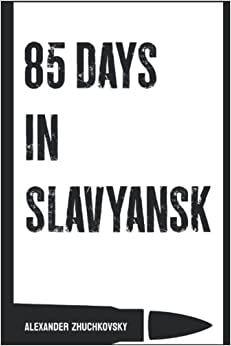
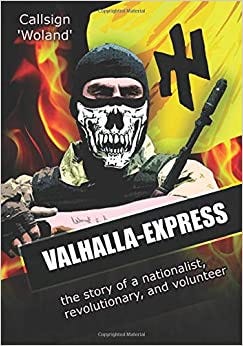
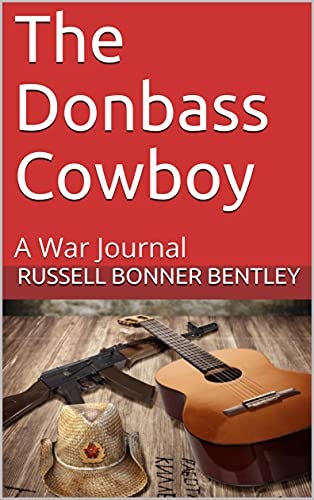

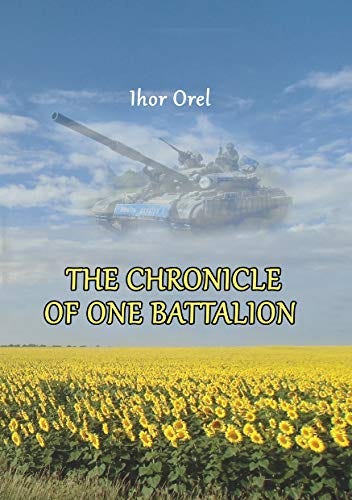

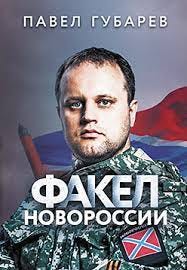
Enjoyed 85 days, loved Fedorov's book and tried google translate HTML version of The torch but struggled. Mix Fedorov with 85 days and you get superb war coverage from trenches to operational overview.
The Foreigners Group is also a good one